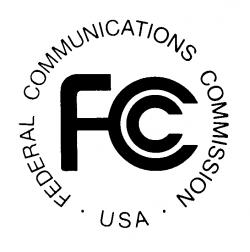The Internet: To Regulate, or Not to Regulate - Podcast
Telecommunications & Electronic Media Practice Group Podcast
 On January 14, 2014, the United States Court of Appeals for the District of Columbia Circuit issued its decision in Verizon v. FCC, the case regarding the Federal Communications Commission’s Open Internet Order. The decision leaves the door open for the FCC’s regulation of the internet, but strikes down certain provisions of the Order, leaving many to wonder what the future holds for innovation, experimentation, and competition in the online marketplace.
On January 14, 2014, the United States Court of Appeals for the District of Columbia Circuit issued its decision in Verizon v. FCC, the case regarding the Federal Communications Commission’s Open Internet Order. The decision leaves the door open for the FCC’s regulation of the internet, but strikes down certain provisions of the Order, leaving many to wonder what the future holds for innovation, experimentation, and competition in the online marketplace.
While the court did not unequivocally uphold the Commission’s net neutrality protections, it recognized the FCC’s authority to regulate broadband internet service and access under Section 706 of the Telecommunications Act of 1996, and found that open internet requirements would promote deployment. Specifically, it found support for the Commission’s conclusion that absent open internet requirements, “broadband providers represent a threat to Internet openness and could act in ways that would ultimately inhibit the speed and extent of future broadband deployment.” The court also deferred to the FCC’s finding that broadband providers have the ability to impose restrictions on edge providers’ conduct, particularly given end users’ inability to immediately respond to ISPs’ activities in this regard. Nonetheless, the court vacated and remanded the non-discrimination and no-blocking requirements adopted in the Order on the basis that they improperly constitute common carriage regulation of broadband services, but left in place the FCC’s transparency (i.e., disclosure) requirements.
Randy May and John Bergmayer held a spirited discussion about this landmark decision.
Featuring:
- John Bergmayer, Senior Staff Attorney, Public Knowledge
- Randolph J. May, President, The Free State Foundation
[Return to the Practice Groups Podcasts menu]






